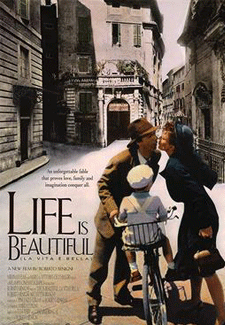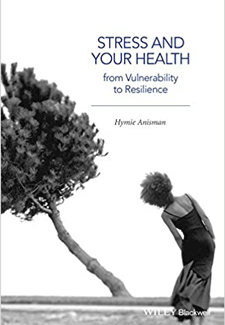Alert: The Plaza Building will remain closed through Jan. 20, 2025.
The Plaza Building will remain closed through Jan. 20, 2025. The Health Center is operating in a modified capacity. Call 303-615-9999 for appointment information during operating hours. Reminder, the Health Center is closed for the winter break Dec. 24 - Jan. 1.
Learn More
Healthy Happy Life
Learn How To Build Your Strengths
Resilience: Reflecting on 2020 and Building on our Strengths for 2021
By Lia Doyle Burke
Program Manager, Office of Case Management
The year 2020 brought many challenges. This goes without saying. Most of us experienced some combination of grief, loss, stress, financial hardship, isolation, physical and mental health challenges, the impact of the pandemic, social unrest, and significant life changes. Whoever you are, you made it through an extremely difficult time and, more than likely, the difficulties didn’t end for you when 2021 began.
Resilience is a term with many definitions, but I like to think of it as the set of tools that help us cope with challenging experiences. Resilience can also mean not just getting through, but growing through hardship. Each day that we live changes us.
Resilience is not something that you either have or you don’t have; it is fluid and depends on your unique context and set of circumstances. Resilience can also apply to families, groups, neighborhoods, or any other community. What may strengthen or add to resilience in one environment may not apply in others; what may have helped you build resilience at one point in your life may not work anymore.
In a series of workshops I led during fall semester in partnership with the CU Denver Wellness Center, I guided participants through building their own metaphorical “resilience toolkit” for coping with and growing through challenges. There are endless ways for you to build up or add to your “resilience toolkit,” all of which are unique to you. I will share some tips and strategies to get you started, and also tell you what I told the workshop participants: take what applies to you and leave the rest.
Ask yourself, what already makes me resilient?
What strengthens your ability to cope with difficult experiences? You may be surprised to find out what you already have in your toolkit that you can continue to build upon. Examples could include certain friends, family members, qualities or strengths you possess, challenges you have already faced, and things that you love to do that provide you with energy, joy or hope. Try also thinking about a community or group that you identify with, and reflect upon these questions with that community in mind.
Practice: Set aside some time to think or journal about this. Keep your discoveries in mind as you move through challenges, or even little annoyances, throughout your day. Let this be a living document: add to this mental or physical list as you discover qualities within yourself and your life that strengthen your capacity to withstand hardship.
Mindfulness:
As John Kabat-Zinn describes it, mindfulness is the “The awareness that arises from paying attention, on purpose, in the present moment and non-judgmentally” (1994). In other words, mindfulness allows you to engage with your surrounding environment in a way that is true to the situation at hand. When you interact mindfully with your surroundings, you do not project preconceived judgements onto your experiences, but rather view challenges just as they are in a given moment. Getting closer to the truth of your challenges and all that they encompass better equips you to meet them.
Practice:
This is easier said than done. You are human and will always hold judgement! Instead of trying to live judgement-free, practice noticing judgment as it arises, acknowledge it, and direct your attention back to the present moment. Perhaps set aside a time to intentionally practice mindfulness once a day (start with two minutes, then maybe increase to five minutes, and eventually more if it feels right). Then, challenge yourself to practice mindfulness in the midst of difficult or stressful experiences. You may notice that this becomes more natural the more regularly that you practice.
Breathe:
Cliché, I know, but breath is a very important aspect to your resilience toolkit, and to your entire well-being! The carbon dioxide expelled by the body and oxygen produced during the process of breathing is essential for performing the most basic functions, such as digestion, movement of muscles, and thinking. Oftentimes we hold our breath or breathe shallowly without noticing, which can compromise the ability for our bodies (and entire beings) to operate at their optimal capacity.
Practice:
As part of your mindfulness practice, also notice your breath: its quality, speed, and depth, just as it is. No need to change the breath; just notice. Also, notice if you are holding the breath at any points throughout your day (perhaps when engaging in something particularly difficult), and practice releasing it. Notice any change in your body or mind after releasing the breath.
Journaling:
Synthesizing our daily experiences into narrative form can be valuable for building resilience. Journaling can help us locate ourselves in place and time, and also find meaning within the difficult experiences that are an inevitable part of life. Journaling may also allow us to grow from our experiences by providing a space to reflect and determine our next steps.
Practice:
Create your own journaling practice. Pick a time and place for regular journaling. Start small (maybe five minutes after finishing work/school responsibilities for the day and before entering into the evening, or whenever works for you). If possible, select a designated location for journaling in order to help make this a routine. Notice how you feel before and after journaling.
As you reflect upon the challenges of 2020 and embark on 2021, I invite you to remember that you have dealt with significant challenges in order to make it to where you are right here and now. You therefore already have resources and strengths to draw upon within yourself and your surroundings. In the process of reflection, you may also notice some gaps—things you wish you had, but don’t right now. This may be uncomfortable, or even painful, to realize. Rather than approach these as deficiencies, try reframing them as opportunities for growth. We all have them. It isn’t easy, but the more that we are able to approach the areas that need improvement non-judgmentally and with gentleness towards ourselves and others, the more likely we are to strengthen our capacity to grow.
Additional Resources from Auraria Library
Check out these books, videos, and articles recommended by Auraria Library about resilience. For more resources, visit Auraria Library’s website.

Life is Beautiful
A charming but bumbling waiter who's gifted with a colorful imagination and an irresistible sense of humor has won the heart of the woman he loves and has created a beautiful life for his young family. But then, that life is threatened by World War II, and his beloved wife and son are threatened with an unthinkable fate.
How to Increase Resilience
Resilience is an essential skill in the workplace because without it, we suffer and stress far more. Kylie Bell describes it as "bouncing forward" from difficult or upsetting events. We can learn to process stress constructively and perform better because we learn to override our emergency brain and problem-solve instead. Resilience, she says, is linked to better health. Kylie counsels mindfulness and choosing to look at stressful situations as challenges, remembering past successes as we go, and taking time for self-care and rest.

Stress and Your Health
This book presents an evidence-based evaluation of the various effects of stress, along with methods to alleviate distress and stress-related illnesses.
Psychological Resilience in Sport
The ability to respond positively to setbacks, obstacles, and failures is essential for any successful athlete. Although resilience has been studied in general psychology for several decades, it is only recently that researchers and practitioners have begun to explore the construct within the sport context. The purpose of this article is to review the current state of resilience scholarship in sport, and to offer guidelines for future research and interventions in this area.